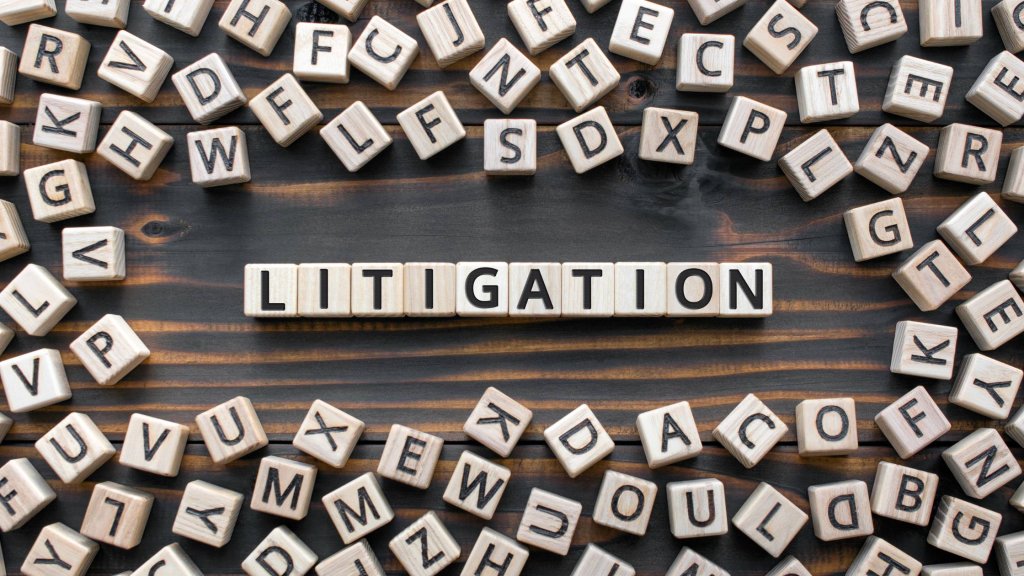VIEW BY TOPIC
- Finding Customers
- Business Systems
- Managing Employees
- Leadership
- Managing Money
Related Posts

Ready to Grow Your Business Fast?
Here’s How I Grew Five Businesses, and Eventually Sold One to a Fortune 500 Company.

5 Leading Causes of Small Business Litigation In 2023
The bustling world of small business comes with a myriad of challenges, not least of which is the intricate web of legal issues that can spring up without any warnings. The term litigation often sends shivers down the spine of many small business owners, and has since become increasingly prevalent in recent years, reflecting not just the competitiveness, but the contentious nature of the modern business environment.
In this article, we take a deep dive into the leading causes of small business litigation, along with the steps that can be taken to prevent the same.
1. Employment Disputes
The first and often most personal arena of litigation centers around employment disputes. The employer-employee relationship, delicately balanced and often subject to emotional undercurrents, has become a minefield of potential legal battles.
From allegations of wrongful termination and workplace discrimination, to disputes over wages and working conditions, small businesses find themselves perpetually on the precipice of potential conflict.
In this context, small businesses, often lacking the extensive HR legal departments of their larger counterparts, must navigate these challenges with a blend of legal compliance, emotional intelligence, and strategic foresight.

2. Contract Breaches
Moving from internal to external relations, contract breaches represent the second major cause of litigation. Agreements, the bedrock upon which business relationships are built, have become subject to strains, particularly in the wake of economic challenges and market instabilities.
Payment disputes, disagreements over service delivery, and conflicts regarding the interpretation of contractual terms and conditions have become commonplace.
In an era where trust is fragile, ensuring that contracts are not only clear and comprehensive but also realistic and adaptable to changing circumstances is crucial.
3. Intellectual Property Violations
In the realm of ideas and innovation, intellectual property (IP) violations have emerged as a significant source of legal contention.
The digital age has democratized access to information and ideas, but it has also facilitated an environment where IP violations can occur, sometimes inadvertently. Small businesses, often reliant on innovative products or unique branding to carve out a market niche, find themselves both as potential violators and victims of IP infringements.
Navigating the IP landscape requires a keen understanding of both the legal and ethical dimensions of intellectual property. Respect for the innovations of others and a proactive approach to protecting one’s own ideas are crucial in mitigating the risk of IP-related litigation.
4. Customer Lawsuits
The customer, once hailed as king, has also become a potential litigant. In an age of empowered consumers, businesses face potential lawsuits arising from product or service dissatisfaction, data protection breaches, or perceived unethical practices.
The rise of social media has not only amplified the voice of the consumer but also facilitated a culture where legal action can be mobilized and publicized rapidly.
In this environment, customer relations cannot be purely transactional, but must be built on a foundation of transparency, quality assurance, and ethical practice.
5. Regulatory Non-Compliance
Finally, the specter of regulatory non-compliance looms large. Small businesses, often subject to a myriad of local, state, and federal regulations, find themselves ensnared in a complex regulatory web.
From tax obligations to health and safety requirements, the potential for inadvertent non-compliance and resultant litigation is substantial.
Navigating through this regulatory maze requires a proactive and informed approach. Regular audits, continuous learning, and a commitment to ethical and legal compliance are non-negotiables in mitigating the risk of regulatory-related litigation.
Conclusion on Small Business Litigation
In conclusion, the legal challenges that permeate the small business environment in 2023 are both diverse and complex. It is thus increasingly crucial for business owners to stay in the loop and be aware of the nature of threats that they face with plenty of sites to find current legal news.
From managing internal relationships to navigating external agreements, from protecting and respecting intellectual property to ensuring customer satisfaction and regulatory compliance, small businesses must navigate through these legal mazes with astuteness and integrity.














